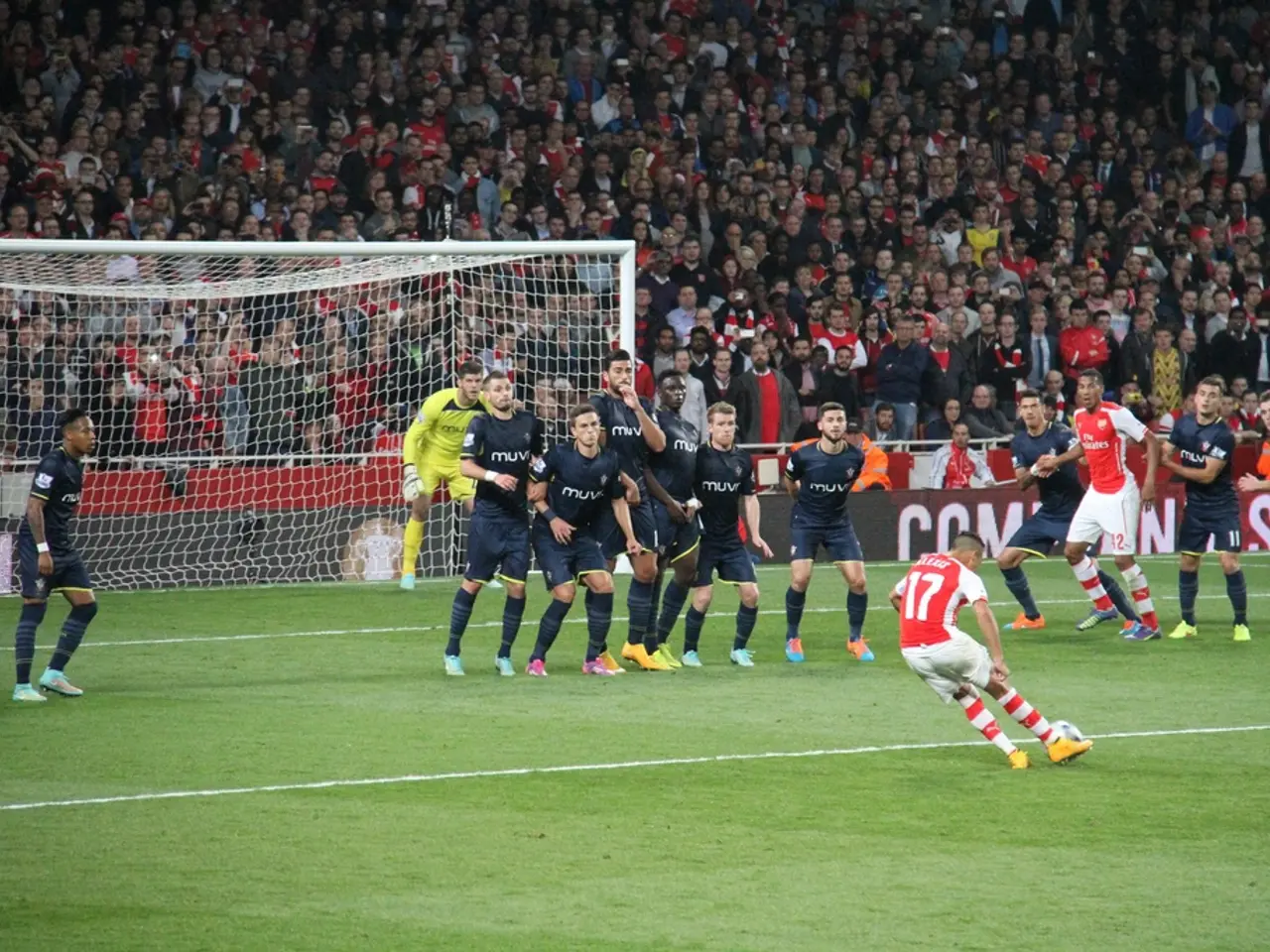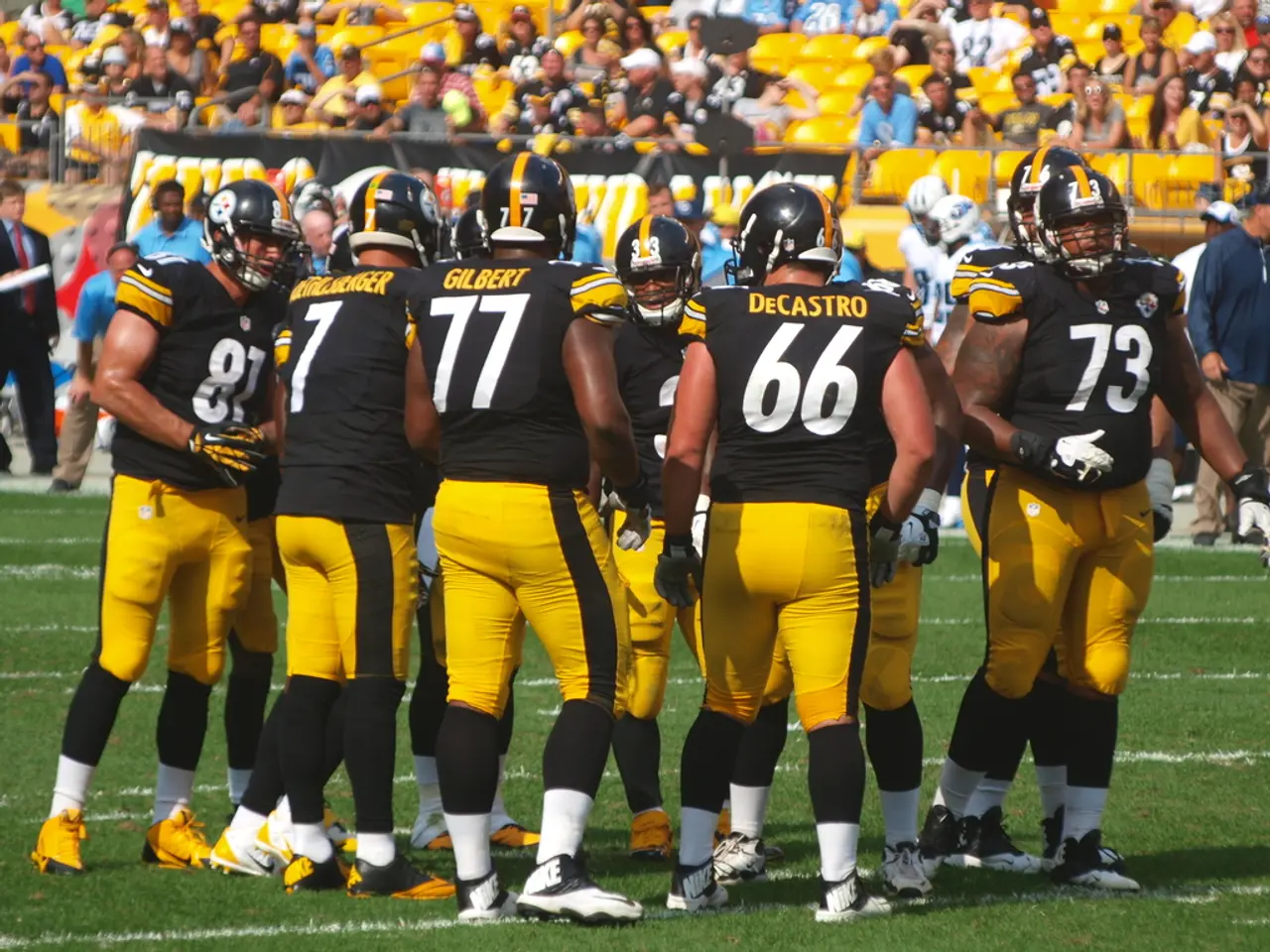Quarterback Powell in the Thick of the Action - Time Slipped Away or Game Misplaced?
In the world of economics, Jay Powell, the Federal Reserve (FED) Chair, finds himself in a challenging position, much like a quarterback (QB) playing a critical game. Powell is known as a "data-dependent" QB, meaning he makes decisions based on the numbers. However, recent economic indicators suggest that some cyclical industries, such as residential construction and heavy manufacturing, are showing signs of strain.
This is the first time Powell has faced such open criticism from his teammates. Two of them, Waller and Bowman, are openly disdainful of Powell's play-calling, with concerns about the potential inflation resulting from his rate cuts. The inflation could potentially fall onto the next QB, a concern that Powell can't ignore.
Powell has a history of pivoting to money printing on the first signs of stress. This strategy, while aimed at supporting the economy, has the potential to create financial imbalances. The fiscal dominance play, a new strategy proposed by the coach (Bessent at Treasury) and General Manager (President Trump), could potentially lead to more inflation.
Another new play, the massive deportation play, could reduce the labor supply and potentially lead to inflation. However, the economic consequences of such a move are complex and far-reaching, and the impact on job creation and economic growth is uncertain.
The potential economic consequences of the FED lowering interest rates aggressively include increased consumer and business borrowing, which can stimulate spending and investment, potentially boosting economic growth and job creation. However, aggressive cuts can also signal economic weakness, leading to market uncertainty or apprehension among investors. Moreover, prolonged low rates risk fueling asset bubbles and excessive risk-taking in financial markets, which can threaten financial stability. Internationally, lower U.S. rates may weaken the dollar, making exports more competitive and easing debt burdens for countries with dollar-denominated loans, but could pressure other central banks to adjust policies.
Amid these challenges, Powell is reflecting on his legacy and whether he will be compared to Paul Volker or Arthur Burns, two former Fed Chairs known for their handling of economic crises. One of Powell's teammates, Governor Kugler, has walked off the field inexplicably, taking early retirement, adding to the pressure on Powell.
As the game progresses, Powell must find the right balance between supporting the economy and avoiding excessive easing that could destabilize markets or increase inflation risks. If he waits too long in the pocket and doesn't cut interest rates, he could be sacked by a recession. On the other hand, if he lowers rates too aggressively, he risks fueling inflation and financial instability.
In the midst of this economic storm, the federal government is considering a new deficit-expanding bill, adding another layer of complexity to Powell's decision-making process. The stock market is at an all-time high, but Powell is concerned about the accuracy of the scoreboard, suggesting that the true state of the economy may not be fully reflected in the market's performance.
As the fourth quarter of the economic game unfolds, Powell and his team will need to make critical decisions to ensure a "soft landing" for the economy, balancing the need for growth with the risks of financial instability. The stakes are high, and the world watches as Powell navigates these challenging waters.
[1] "The Federal Reserve's Dilemma: Balancing Inflation and Economic Growth" - The Brookings Institution [2] "The Impact of Lower Interest Rates on the Economy" - The Balance [3] "The Federal Reserve's Role in Managing the Economy" - Investopedia
- Jay Powell, as the Federal Reserve Chair, faces a predicament akin to an American-football quarterback, tasked with balancing inflation and economic growth, similar to the delicate play-calling required in a critical game.
- Despite the potential economic benefits of lowering interest rates, such as increased consumer and business borrowing, there are risks involved, much like the uncertainty surrounding a crucial pass in a football game – prolonged low rates could fuel asset bubbles and excessive risk-taking.
- Analogous to a football team, the Federal Reserve (FED) consists of teammates with diverse opinions. Two members, Waller and Bowman, are openly critical of Powell's interest rate cuts, concerned about the potential inflation resulting from his strategy, echoing debates in sports-analysis circles about winning strategies and their long-term consequences.








